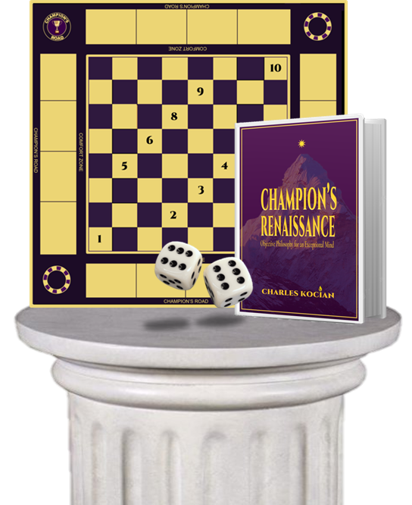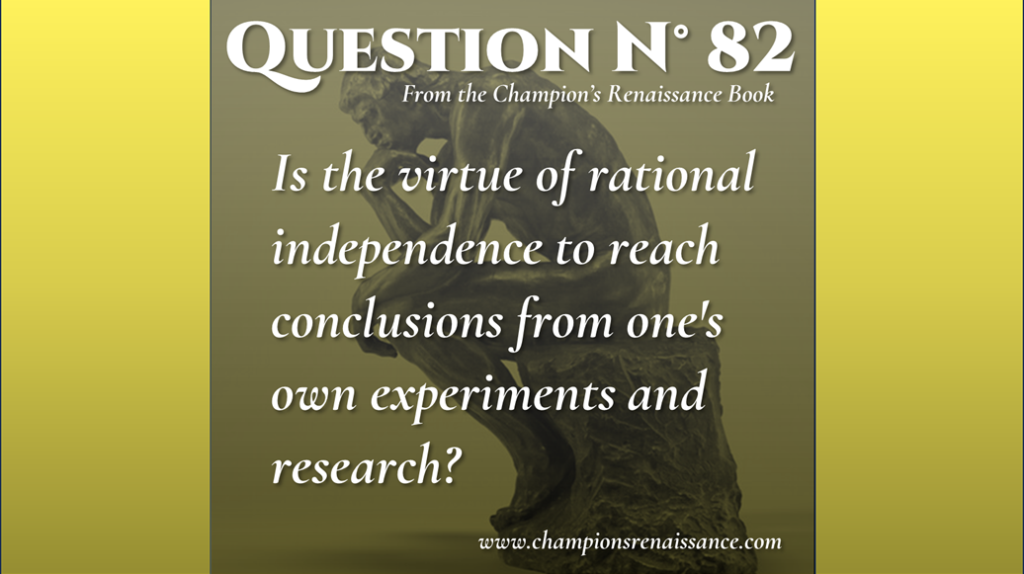
(Answer & comments at the end).
ANACYCLOSIS
By Charles Kocian
Last week, on December 13th the UN called for a cease-fire in Gaza, but only 10 countries in all of the world were against it: Israel, US, Austria, Czechia, Guatemala, Liberia, Micronesia, Nauru, Papua New Guinea and Paraguay. Other news was that president Putin declared he is going to run alone for elections next year, just as Kennedy Jr is going to do it in the US presidential elections in 2024 and, in the same week, Chileans voted rejecting a new Constitution. But was all this voting done with a cool-rational-head or a heated-heart? Did they vote using their critical thinking faculty, spending serious hours to study before voting or they just voted in the easy emotional way choosing right or left?

Chile voted rejecting a new constitution.
Can Democracy exist with citizens who choose not to read or think what they are voting for? The short answer is no. What we see today is not Democracy but Ochlocracy or the rule of the mob (a manipulated mob by Propaganda). Democracy is for thinkers; Ochlocracy, for followers. The mob don’t choose to think carefully but to follow the polls. So, the truth is that, (in Russia, US or any other country), people vote emotionally instead of intellectually. A student chooses its destiny studying seriously to enter university. But is the destiny of a country less serious than that? No. So again, what we see today is not Democracy but Ochlocracy, a term we found in Machiavelli’s book Discourses on Livy.
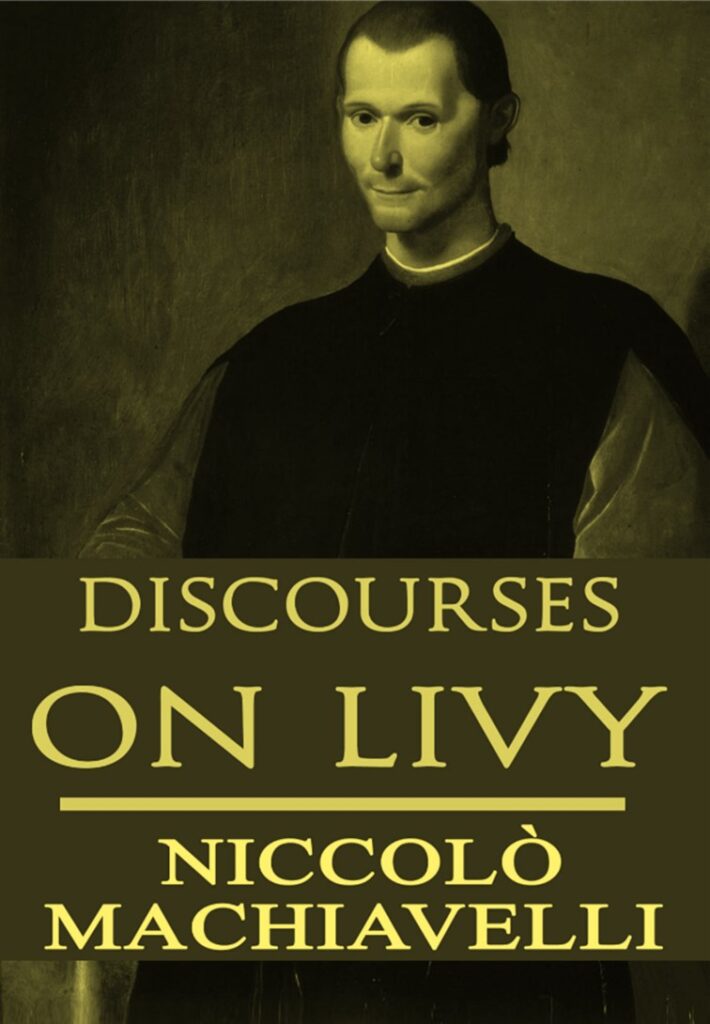
As our readers know, Machiavelli was a great thinker in Florence during the Renaissance. Although his famous book is The Prince, in Discourses on Livy he refers to the Greek historian Polybius where he talks about Ochlocracy. The first Latin translation of Polybius books was done by Janus Lascaris who travelled widely in Europe, from Florence to France, Venice and Rome. His highly mobile position as the first translator of Book VI of Polybious explains its early diffusion. It can be said that the notion of a “separation of powers” (central to the US Constitution) derives more from Polybius than Aristotle. But who was Polybius and when did he live?

Polybius
Polybius lived in the middle Hellenistic period as an historian, documenting the rise of Rome in the Mediterranean in the third and second centuries BC. He was born in Megalopolis, Greece around 200 BC. His father was an important land-owner and member of the ruling class, allowing him to closely observe the political and military affairs of Megalopolis and gain experience as a statesman. He was responsible to organize the new form of government in the Greek cities.
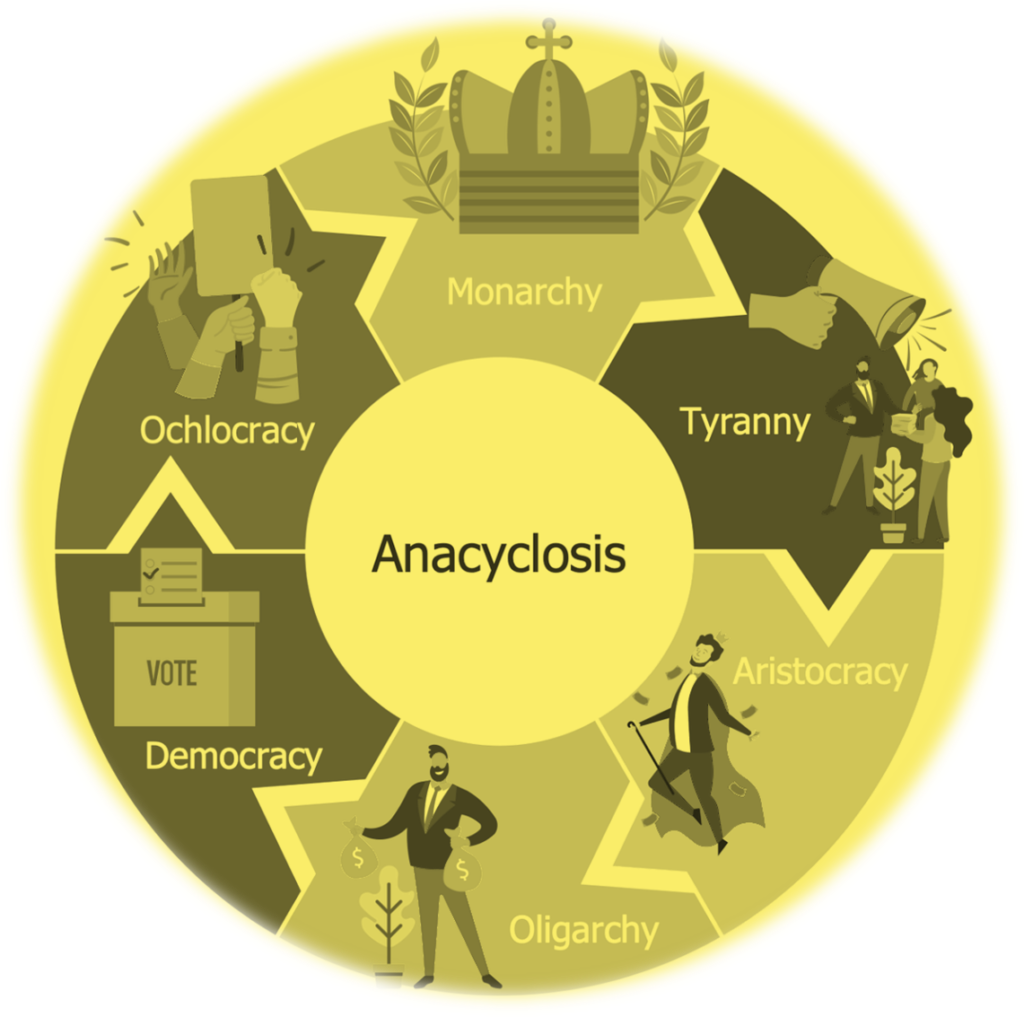
Polybius Anacyclosis theory.
In his Book VI, Polybius describes Anacyclosis, his theory of the “cycle of constitutions”. He said that their political, military, and moral institutions allowed the Romans to defeat their rivals in the Mediterranean. He concluded that Rome’s power derived from cultural customs and institutions which regulated and dissuade negative actions of their people. Its culture promoted a deep desire for noble acts, a love of virtue, piety towards parents and elders, and a fear of the gods (deisidaimonia).
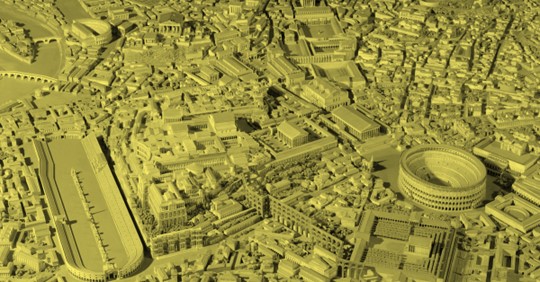
Model of Ancient Rome by Italo Gismondi.
CONCLUSION
Although we think we live in Democracy, the truth is that we live in Ochlocracy, the worse kind of government in Polybius Anacyclosis theory. But in the era of information, Internet and AI, only the elite-think-tanks understand the psychological techniques and propaganda methods to manipulate the minds of the masses. “In almost every act of our daily lives, whether in the sphere of politics or business, in our social conduct or our ethical thinking, we are dominated by the relatively small number of persons… who understand the mental processes and social patterns of the masses. It is they who pull the wires which control the public mind.” That was written by Edward Bernays, the father of Propaganda in 1928, but in 2023 it has improved. So, with or without propaganda we can be sure to say that, as I say at the end of my book, that a New Renaissance depends on how rational-independent each man chooses to be. Indeed, to think or not to think independently is an individual choice and this is especially true before voting for a new president or a new constitution.
Now the answer to question 82.
QUESTION N° 82
Is the virtue of rational independence to reach conclusions from one’s own experiments and research?
a) Yes
b) No
The answer is: a) Yes. As I explain in my book Champions Renaissance, the independent man focuses his mind and discovers the world for himself on the basis of his own sensory experience observations and logic, like Galileo did interpreting its telescope data using reason to conclude the Earth moves.
Leave your comments here.
